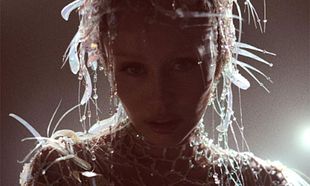Jim (Murphy) and Daniele (Birthistle) are a happily married suburbanites with two kids, spending their evenings enjoying quiet dinner parties with friends Chris (Scott) and Yvonne (Walker). After one such evening Yvonne returns to Jim and Daniele to say that Chris, edgy throughout dinner, has hit her. Daniele is invited to stay and Jim, a writer working from home, welcomes the distraction. He also welcomes Yvonne’s unexpected advances and both embark on an affair…
After penning Intermission, Boy A, Broken (one of the best films of 2012) and Perrier’s Bounty, Mark O’Rowe turns his hand to directing and keeps things as simple as possible for his first outing; his camera rarely moves throughout the one hundred minutes of this low-key but thoroughly engrossing drama (at one point he rather have Murphy walk in and out of frame than follow him). The effect can cause one to think they’re watching a play on screen but the writing is so strong, and the characters boasting so much depth, one doesn’t notice.
The Delinquent Season is a deconstruction of an affair: not just the build-up and the affair itself, but also the fallout and the ripple effect it can have on the lives of those caught up in it. The characters are all too aware of the trouble their actions are going to bring: after the first hastily-grabbed tryst, which can be put down to the heat of the moment, the two stop and think before doing it again when they rent a room in town: “This time is different – this is the premeditated one,” says Murphy.
O’Rowe also strips away at the likeability of the characters that he first worked hard at to instil. Murphy reveals himself to be a coward, backing down from the aggressive waitress (an eye-catching turn from Lydia McGuinness) and continues the affair under false pretences, refusing to relate important information to Walker which would surely cause her to end it. Walker is more understandable, desperate for kindness she’s not receiving from Chris, but she’s also sleeping with her best friend’s husband and encourages him to leave her. Chris is a painted as a monster but then it’s revealed why he’s acting the way he is. This is the way to write three-dimensional characters.
While all this could have amounted to a hill of beans O’Rowe circles the wagons around his characters. One comes away with the feeling that there are only four people in this world: what this does is it ramps up the stakes and emphasises the destructive nature of the numerous betrayals. The dialogue is wonderful in its simplicity with O’Rowe balancing the more philosophical musings on the destructive affair with humdrum husband-and-wife chatter (changing the sheets, worrying about lack of sex in their marriage, etc).
“Happiness is fragile”, Walker says at one point. She’s not kidding. This isn’t an easy watch but there isn’t a moment that doesn’t ring true.




















































































